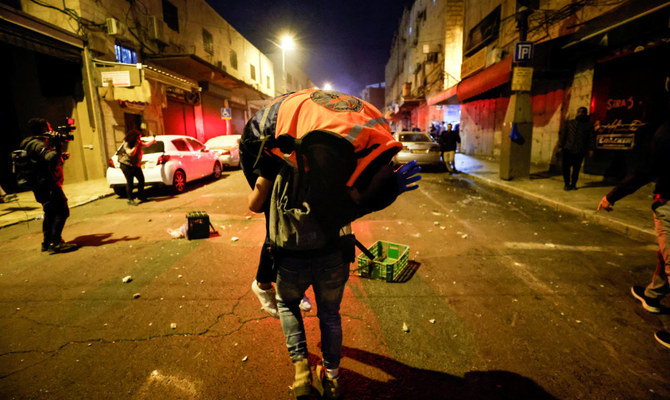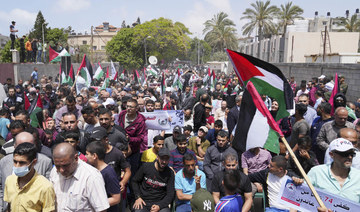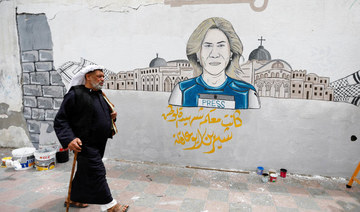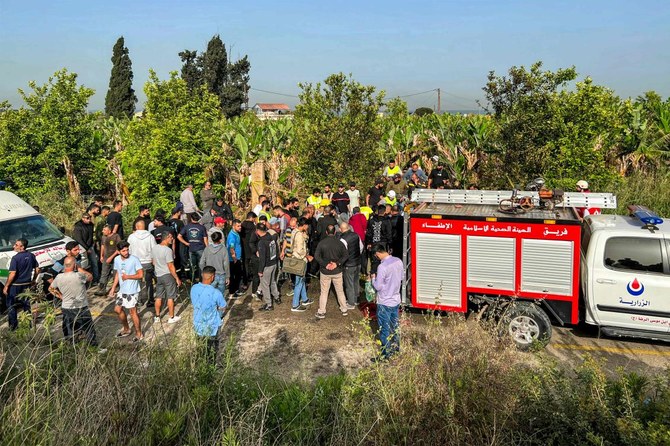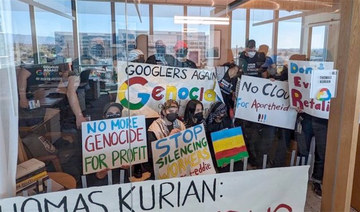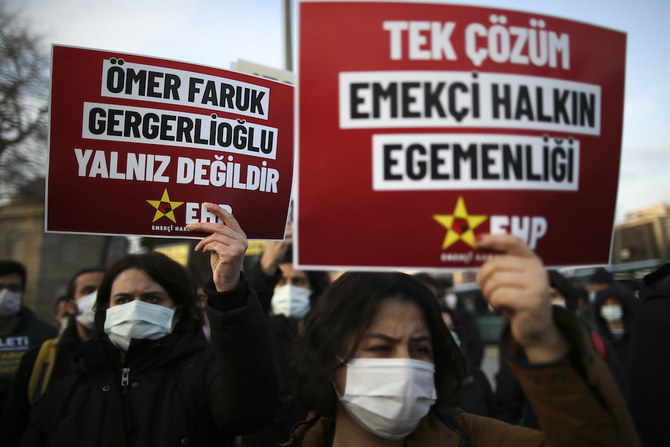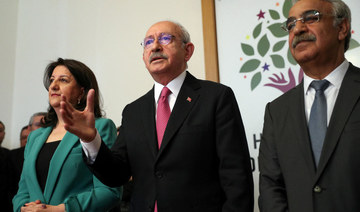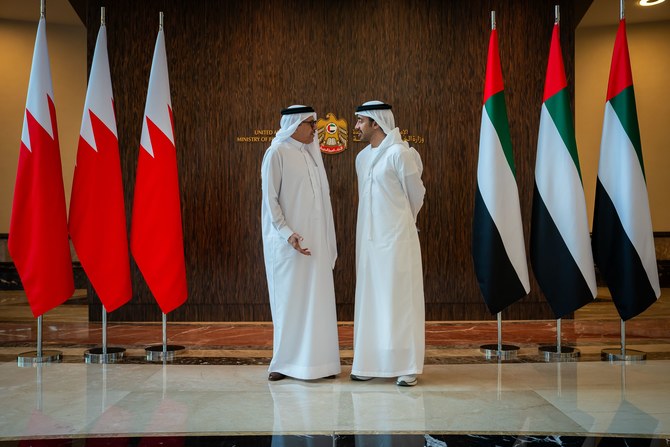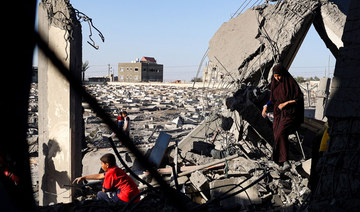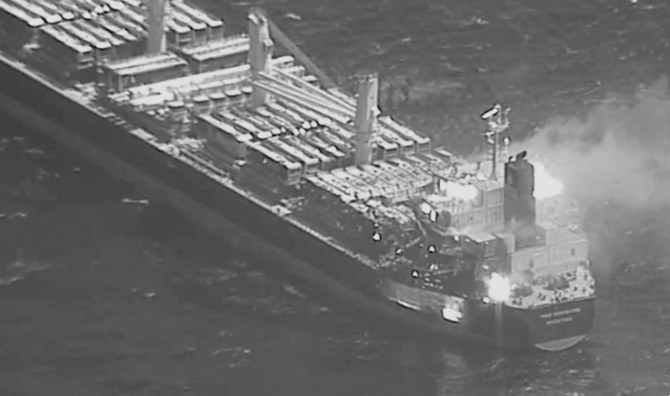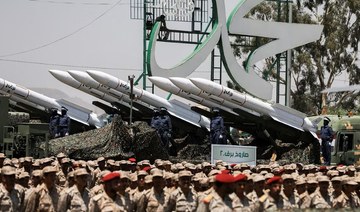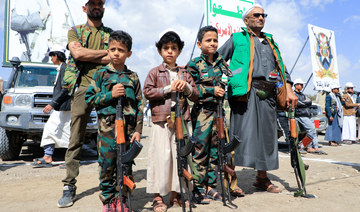RAMALLAH: More than 70 Palestinians were wounded as Israeli forces attacked a funeral in East Jerusalem late on Monday.
The unrest unfolded as Palestinians were burying Walid Al-Sharif, 23, who died on Saturday of wounds suffered during clashes last month at Jerusalem’s flashpoint Al-Aqsa Mosque compound.
The violence spread to the West Bank with Israeli forces arresting 16 Palestinians and a further 35 from East Jerusalem.
The attack on Al-Sharif’s funeral was similar to the brutal crackdown by Israeli police on the May 14 funeral of Al-Jazeera reporter Shireen Abu Akleh, who was fatally shot on May 11 by Israeli soldiers without any provocation.
Meanwhile, dozens of students and civilians suffered after inhaling tear gas in Al-Aroub refugee camp, north of Hebron, following clashes with the Israeli army. The violence erupted as school students conducted a march in memory of a Palestinian who was killed by the Israeli military. The injured were treated at the site.
Clashes also erupted between school students and Israeli soldiers in the south of Hebron city, near the Ibrahimi Mosque. Palestinian youths threw stones at Israeli soldiers who lobbed tear gas canisters at the students, leaving several injured.
Israeli sources said the Israeli army is considering using combat helicopters during its operations in the occupied West Bank. This escalation follows the killing of an Israeli officer from a special unit during an armed clash with Palestinian resistance fighters in Jenin on May 14.
The Israeli army deployed combat helicopters during the second Palestinian Intifada from 2000 to 2004. The vehicles were occasionally flown over Palestinian territories during intense clashes with militants in the West Bank.
Israeli sources stated that “the strategy proposed by the Israeli security services, and adopted by the political leadership, is to expand arrests and raids, mainly in Jenin, to produce and obtain more intelligence and arrest more wanted persons.”
Ibrahim Melhem, the spokesperson for the Palestinian government, told Arab News: “The absence of deterrent punishment and the constant feeling of impunity (enjoyed) by the Israeli occupation drives it to persist and continue this policy of escalating brutal and racist violence against the Palestinian people.
“The international resolutions calling for imposing sanctions on Israel must be activated because if sanctions are not imposed, and no measures are taken, it will be considered the green light for Israel to commit more crimes against the Palestinians.”
Benny Gantz, the Israeli defense minister, said during his speech at a conference at Reichman University in Herzliya, Israel, that the recent Palestinian attacks in Israel are interlinked and inspired by the incitement from organizations in the region. “This incitement does not receive sufficient condemnation from the world and the leaders of the region.”
Israeli Prime Minister Naftali Bennett said on Tuesday that his directives are clear about targeting Palestinian militants “wherever they are, and with all kinds of weapons.”
He added: “We fully support the army and police in their efforts to target any militant, whether in Jerusalem, the West Bank, or anywhere else in the country, who raises his hand on any settler or soldier from the army.”
Hamas spokesperson Hazem Qassim said Bennett, by allowing his army to target Palestinians with all means, has shown that “he intends to use the systematic terrorist policy in dealing with our people.”
Qassim said these statements expose how the occupying forces intend to escalate their aggression, indicating that Hamas will respond to the occupation by escalating the act of resistance in all its forms and continuing the revolution in all areas of the struggle.
Meanwhile, Bennett welcomed a recent decision to expand Jewish settlements in the occupied West Bank that the Palestinians and most of the international community view as illegal.
During a visit to the settlement of Elkana, he depicted the expansion of settlements as a response to recent Palestinian violence.
Most of the international community, including the White House, view the settlements as an obstacle to peace because they shrink and divide territory where an independent Palestinian state would be established.




